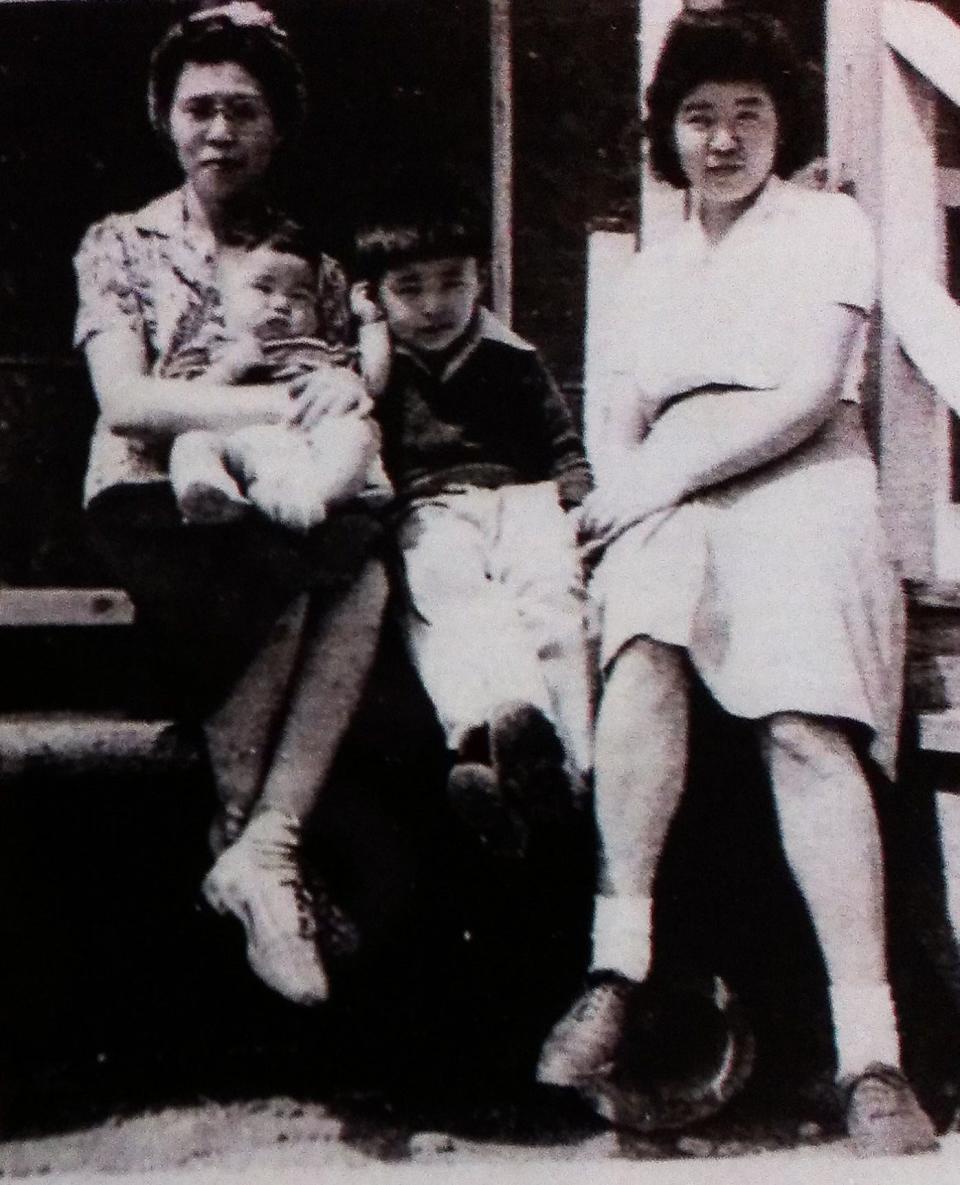Once a WWII Japanese-American prisoner, Robert Yada of Fort Smith dies at age 85
He was only 4 years old when his family landed in a prison camp in Arkansas for Japanese-Americans.
Robert Yoshiaki Yada had been forced with his family to leave their home in Stockton, California, under an executive order to relocate in 1942 as a World War II prisoner. Since he was a child, he did not know why. He only knew that he had fun during play-time and being together with his friends and family, who couldn't leave.
Yada died May 15 at the age of 85 after a long battle with cancer. Yada's life was celebrated Friday at First Baptist Church in Fort Smith.

Yada and his brother, Richard Yada, were two of about 8,000 Japanese-Americans imprisoned with their family at Rohwer Internment Camp in McGehee, Arkansas.
His son Greg Yada, 57, of North Little Rock remembers his grandfather, Samuel Yutaka Yada, telling the story of how the family slept in a horse stall after being rounded up in California, before heading to the prison camp in Arkansas.
"They were in temporary quarters at the Stockton, (California) racetrack from what I remember. I remember my grandfather told us that they were one of the fortunate families because they were assigned to a horse stall for a period of time. I don't know where the others lived but he said they were fortunate to have a horse stall. That resonated with me as far as how they were treated," Greg Yada said.
After the war, Robert Yada, who was born in Hawaii, remained in central Arkansas and worked as a sharecropper on a vegetable farm. He later joined the Army that imprisoned him.
At Fort Chaffee, Robert Yada worked as a civil engineer responsible for all the facilities that were designated for Vietnamese refugees in 1975.
Greg Yada said his father influenced his career choice in civil engineering.
"He was an inspiration to me as a role model," Greg Yada said.
Painful memories
Robert Yada and Sarah Yada were married for 58 years.
She said the memories of the WWII prison camps for most Japanese-Americans are painful and were not discussed when Robert Yada was young.
She heard stories of what it was like in the Rohwer prison camp in McGehee. How his family and other Japanese-Americans in California had to leave their property and pets behind and take a rail car to a camp in Arkansas. The people were forced from their homes in California where they were successful farmers. When they were released, they were given $50 and a ticket to take a train.
"The people there, the adults at the camp did not, after they left the camp, speak very much about the camp at all," Sarah Yada said.
She said it wasn't unusual for the children to learn nothing about the internment camps from their parents.
"They did not talk about it very much at all. It was very painful," she said.
Sarah Yada said she heard the stories of how Yada's family persevered, worked hard and became successful. Robert Yada was a patriotic man, who loved Arkansas, and the people in the state. He was also a big Razorback fan, she said.
Sarah Yada was a student at Little Rock University, later UA-Little Rock, where she met Robert, who was also a student in 1959. They both attended Central High School in Little Rock, where Robert Yada was a few years ahead of Sarah.
"We dated for a long time because I was a pre-nursing student. ... When we met, I had three more years of college to go and I had no intention of getting married at the time ... so we didn't marry until (February) 1964, " Sarah Yada said.
She said her late husband told the stories of his life over and over to those he knew.
She said only five Japanese-American families released from the McGehee camp stayed in Arkansas, and the Yada family would be the only one to plant their roots in the state.
"One by one, the families started going back to California. And Bob's family was the only one from the camp that stayed continually in Arkansas," Sarah Yada said.
"They stayed in Arkansas because they liked the people here," Sarah Yada said.
This article originally appeared on Fort Smith Times Record: Robert Yada of Fort Smith was a prisoner of war as a child in WWII

